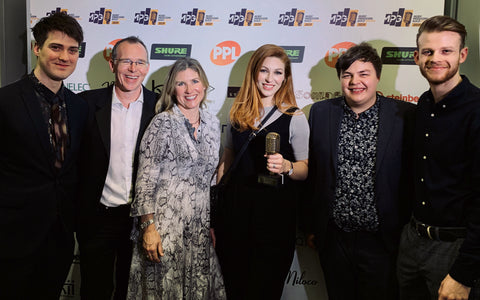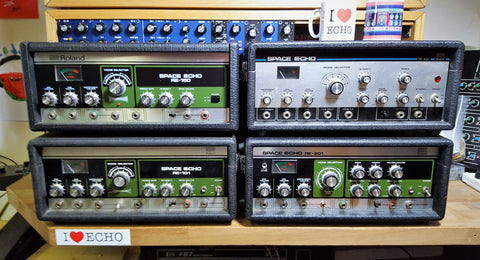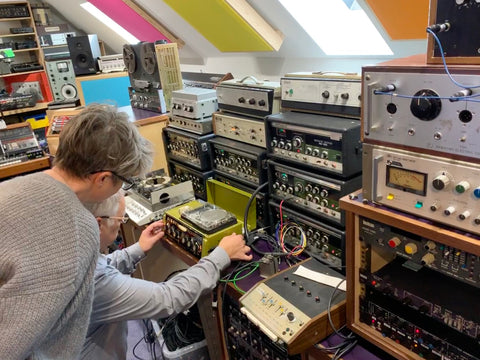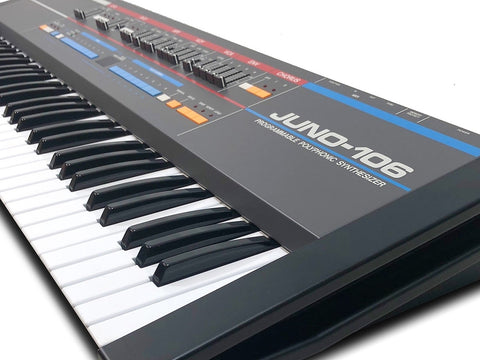A Fairlight, a Mellotron FX & a Robot Monkey Head by Dominic Sutton
Jul 11 2018 0 Comments Tags: Fairlight, Synthesizer
A couple of weeks ago, our intrepid explorer Gid ventured to Bradford to delve beneath the Science & Media Museum as part of workshop on 'Objects of Electronic Sound and Music'. At the museum they have begun, as of two years ago, a collection of music tech covering everything from recording to live performance and, although it’s still early days, they already have some very interesting pieces. When we heard what they were doing and were invited to see inside the stores, and to be part of working out what to do with it all, we definitely wanted to help.


Thanks to museum curator Annie Jamieson and Dr. James Mooney of Leeds Uni for inviting us and hosting the day (and to Tom Smith from Leeds’ MAP Charity for the original hook up). Learning about the challenges, limitations and possibilities of music tech in museums shed a different light on what we do at Soundgas, but also definitely reinforced for us that our focus on training new techs, sharing skills, documenting what we do, and passing on what we are learning, is the right way for us to go. And we also found common ground between us and the museum and ways we can help them in their goals. We’ll have more news about how we are getting involved as it happens, but for now here below are a few of the highlights.
Fairlight CMI Series III


Resident for a period of time at Abbey Road, and apparently fully functional apart from the light pen (although we weren’t allowed to turn it on...), and complete with all the leads, discs, cartridges, and the huge, barely-touched manual. In fact, it is this that perhaps best illustrates one of the challenges with such an instrument in a museum – these were used not by studying the manual, but by skilled musicians who dove in, spent many hours experimenting, and using them in recording situations. It is that knowledge and experience which the museum somehow need to capture and preserve if they are to truly show what something like this could do, as well as keeping the actual machine working!

The start of the Fairlight manual is also particularly good...

Mellotron FX

From the BBC. Rare sound effects version of a Mellotron – has a different control layout to either a Mellotron I or II. This was working... but the last time they switched it on they got blue smoke. So it needs to be fixed, right? Well, only if it is going to be used, otherwise it's not necessarily the best use of limited museum resources that could be spent on other equipment. Given that it is already possible to hear what one of these could do, perhaps it would be better to let visitors hear the sounds and see the machine and the tech, but spend money fixing or buying something else? More dilemmas…

Neve DSP-1

This is the control surface for the second ever Neve DSP-1 desk to be made (the first fully-digital sound desk to be produced). Ordered by the BBC in 1985, this was The Future, however apparently the Radio 1 engineers didn't much fancy getting to grips with The Future, so it was mostly used by Radio 3 for opera (heavy Glyndebourne action) - plus also Genesis at Wembley. Only the console is there beneath the museum - all the processing for the desk is on five pallets(!) in a warehouse.

Robot Monkey Head

We did warn you. Didn’t make a note of what film this was used for. Was too busy going wtf?
And finally, and possibly the coolest thing for readers of a certain age was this unassuming wooden box tucked on a shelf.

It's the "Audience Reaction Monitor" aka The Clapometer - the actual one! - from Hughie Green's Opportunity Knocks (for younger readers that was the original X-Factor and Britain's Got Talent which was on telly while Simon Cowell was still in short (but no doubt still terrible) trousers).
0 Comments





Leave a Comment